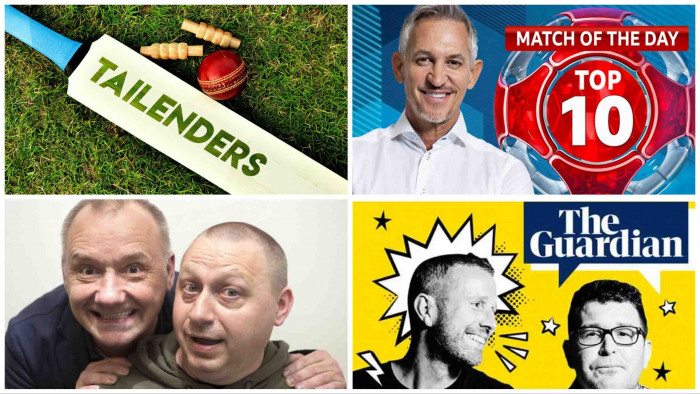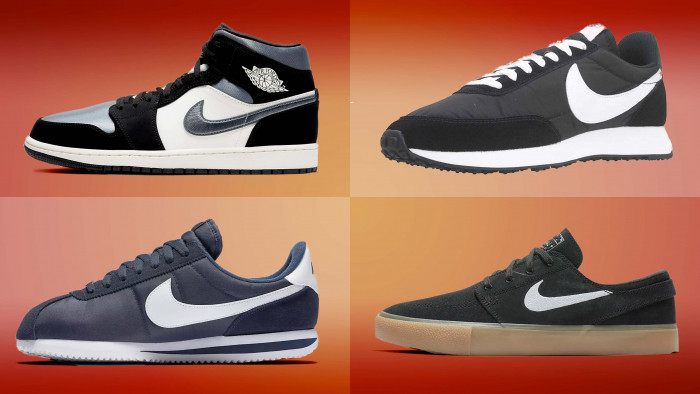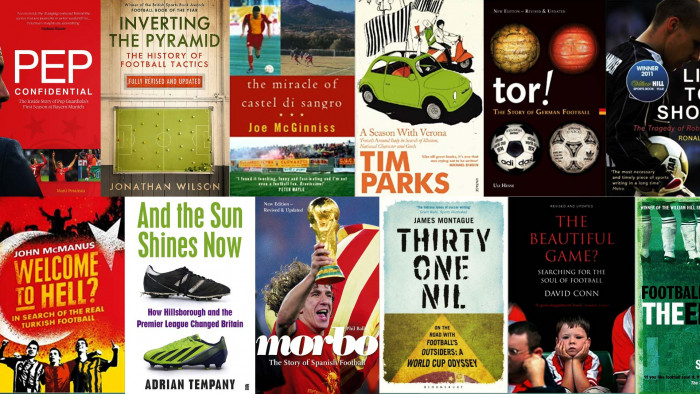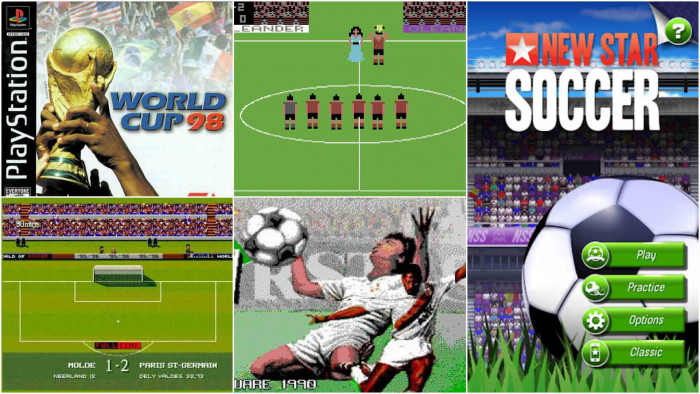So, what exactly is the EU's new "meme-killing" law, and why does it affect football fans?
A controversial new proposal could mean you can't take selfies at sports matches


It’s been dubbed the meme-killing law – which, on the face of it, sounds ridiculous. How could memes be made illegal?
But this week members of the European Parliament voted to pass a new directive which could change the way we use the internet drastically. They say it’s to protect copyrighted material. Its critics say the results will actually amount to the death of creativity on the internet, as well just plain old censorship.
The EU is hard to follow at the best of times – so to explain: a directive is a legal act taken out by the European Union which must then be followed by member states. The EU doesn’t actually dictate how this would be done. In short, if the EU passed a directive saying “ban all Spongebob memes”, each country in the EU would have to decide exactly how they would go about it.
The Copyright Directive was first mooted in 2016 and has faced widespread opposition since. Wednesday was the last chance members had to add any amendments, with 438 lawmakers voting for the amended proposals, versus 226 who voted against them.
What are the proposals?
There are three parts of the directive which will have the biggest impact on the internet as we know it today. Article 13 will force anyone but the smallest companies to adopt a copyright filter. It makes websites like Facebook, Twitter and YouTube directly responsible for copyrighted material uploaded by their users. This bit specifically is the meme-killer – as any copyright filter could potentially catch out most memes before they even got going.
Then there’s Article 11, which campaigners against the law have called the “link tax”. In a nutshell, it would mean internet companies like Google or Facebook have to pay news outlets every time they link to their content.
Given the state of the industry, this sounds like a good thing – but the issue is complex. As BuzzFeed’s Ryan Broderick points out, when Spain tried to force Google to pay news outlets every time their stories were on Google News, Google just decided to close Google News in Spain. “Ever since, Spanish users have had to go to news websites directly, which didn’t really affect large publishers, but has had a huge impact on small publishers in Spain,” he wrote.
“This new directive could stop you filming your mates in the stands of a football match”
There’s one more article which would have a huge impact on sports coverage. This is already a murky area. During the last Olympics, the International Olympic Committee cracked down hard on memes – there was one video which illustrated the gulf between gold medal winner Katie Ledecky and silver medallist using internet favourite “Smooth” by Santana. It was hilarious. But I can’t show it to you, because it contravened the IOC’s copyright policy, was pulled down sharply and relegated to meme memory.
Article 12a goes one step further, preventing anyone who isn’t the organiser of a sports match from posting any video, photo, anything of the match. This could, potentially, include selfies of you and your mates in the stands, or short videos you took of play on the field. As an excitable Wales fan, some of my fondest memories of Euro 2016 included viral videos of Welsh fans singing away in in stands or viral videos of players’ post-match dancing. This new directive could potentially put a stop to those.

How could this lead to censorship?
It’s no wonder, then, this new copyright directive has caused panic among those who enjoy the internet as it is today.
The Electronic Frontier Foundation, which has been fighting the law since it was first proposed, called it a “crushing setback” in a blogpost written by special advisor Cory Doctorow.
“Today’s Copyright Directive vote not only makes life harder for creators, handing a larger share of their incomes to Big Content and Big Tech – it makes life harder for all of us,” he said.
In a lengthy thread on Twitter, he explained how these filters may actually hurt many creators.
“There are thousands of ways that filters can accidentally finger your legit works as piracy, and if you’re not a pirate, your remedy is to file appeals, cross your fingers, and hope a platform with a billion users and millions of people in your situation will review your case,” he said.
Supporters of the directive have said the filters won’t actually have as drastic an effect on the internet as its critics claim. A Society of Authors statement posted on August 30 said point blank this wasn’t about putting a stop to memes or censorship. They said: “Parody is not threatened (and neither are ‘memes’) — it’s already covered by an exception to copyright and the proposals say rightsholders can’t prevent uploading of works covered by exceptions.”
How are similar filters already harming creativity?
But there are already plenty of real-world examples of how these kinds of filters can go wrong. Algorithms can’t really tell what’s parody, whether something is fair use, or even if something is just a video someone made for fun rather than to make any money.
A good place to start is YouTube, which spent a lot of time and money on its Content ID system so people could keep control of their copyrighted works.
People who own the copyright submit their files to YouTube. Each video uploaded to YouTube is scanned against this database to see if they breach copyright. So maybe a copyrighted song is playing in the background – the owner of that song would be notified. Copyright owners get to decide what happens next – sometimes, they let it slide, sometimes they decide to monetise the video themselves. Other times, they’ll block it.
It’s not as strict a system as the directive proposes – but still has its faults.
Earlier this year, YouTuber Paul Davids found himself in a weird situation, when his own song was flagged by the system. The Dutch YouTuber makes videos where he plays different guitar riffs. But this one was one he’d written and recorded. It turned out, someone else had uploaded it to Content ID before he had.
He said he “hugely” disagrees with Article 13. “I think it’s bad for the free internet as we know it,” he said.
“Since that kind of policy is already present on YouTube I don’t think it’ll influence my channel too much, but that’s not the point here.
“I don’t like the ‘guilty until proven innocent’ approach with this new upload filter.”
Even non-algorithmic copyright claims on YouTube are proving to be a pain for creators. Twitch streamer PayMoneyWubby made a video parodying and criticising TikTok, then known as Musical.ly, for the sexualised content some of its younger users were posting. The owners of the app filed a takedown notice.
“I don’t like the ‘guilty until proven innocent’ approach”
After the story went viral on Reddit, with PayMoneyWubby pointing out none of the many, many Musical.ly compilations had been taken down and that his videos should be protected under fair use, YouTube relented. PayMoneyWubby, while based in the United States, says he thinks similar copyright rules for other sites could lead to more situations like this. “Almost everyone in my roster of YouTube friends has been hit with some sort of unjust/unsupported copyright issue in the last year alone,” he said.
“Very rarely are these issues resolved and they usually take some sort of viral notice to get overturned.”
His worry is this new legislation would be used against creators with “controversial opinions”.
“The main fear here being a copyright holder could in theory claim a review piece simply because of negative press, and as a result that content disappear,” he said.
Supporters of the law however say copyright needs to be updated for the digital age; that creators deserve to be paid fairly for their work.
Nevertheless, the worries remain. So: what happens next? Either way, the EU isn’t memeless quite yet. The next step involves negotiations between MEPs and European member states before another vote in January. So we’ll have to wait until then to see if the Spongebob memes prevail.
(Pics: Getty)
Latest
Related Reviews and Shortlists









